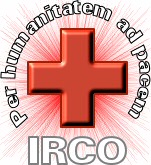International Red Cross Organization
Originally set up as a non-profit organization, funded by donations and grants, the IRCO was designed to serve as a humanitarian first response team for disasters. Although chartered by the United Nations, the IRCO and the national humanitarian aid societies have not limited their activities to just United Nations member states.
Since its original creation, humanitarian aid agencies have sprung up in many parts of NationStates, with the IRCO being called upon to coordinate the activities of these national disaster response teams. The role of the IRCO has been increased beyond just responding to disasters, to include additional tasks such as coordinating the international transfer of blood supplies and being an advocate for basic human rights issues. The IRCO has also been called upon to send in neutral observers in some conflicts between UN member nations in order to see that the Wolfish Convention on POW was adhered to by UN.
Contents
IRCO History in UN
The IRCO is the most cited international organization by the United Nations. To date the organization has been included in the activating clauses in seven UN resolutions.
The IRCO was founded on Sep. 1, 2003 by Los Chingados's IRCO resolution (#29), by a vote of 11,835 to 1,600. To date only Goobergunchia's Outlaw Pedophilia resolution (#22) has achieved a higher level of support.
The role of the IRCO was expanded by the UN in with the adoption of Malagassia's World Blood Bank resolution (#55), in which the UN asked its member states to use the IRCO to coordinate the distribution of national blood bank supplies to other national blood bank programs, as needed. In acknowledging the nature of the association of the UN created IRCO to national humanitarian assistance programs, the language of this resolution actually specifically cited a "Red Cross" and a "Red Crescent".
The authority of the IRCO to respond to disasters was later enhanced by the passage of Mikitivity's Good Samaritan Laws resolution (#76), adopted Oct. 8, 2004, and Huai Bei's Epidemic Prevention Protocol resolution (#77), adopted Oct. 13, 2004. Together, these two moral decency resolutions enhanced the ability of international disaster response teams to render immediate emergency aid, by establishing limited civil liability protections for their services.
The IRCO's role in coordinating humanitarian disaster aid in response to tsuanmis and other natural disasters was reiterated by Grosseschnauzer's Tsunami Warning System resolution (#90) and Groot Gouda's Natural Disaster Act resolution (#100).
The coordination blood bank supplies was expanded to include organ donations by Venerable Libertarians' UNWODC resolution (#96). To carry out this detailed task, the resolution created a new subcommittee to the IRCO, UN World Organ Donor Centre (UNWODC), that was empowered to utilize existing IRCO communication and transportation networks to move organs in critical situations.
Associated Humanitarian Agencies
|
|
List of Notable Events
- Earthquake in Ottoman Empire
- Neo Tyr War

